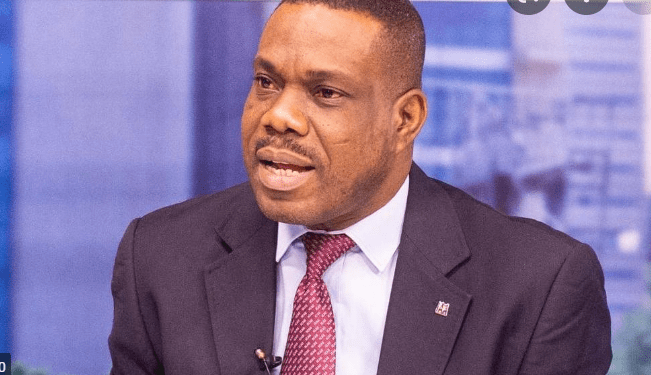IAA Director-General Deepens Call for Amendment to IAA Act to Enhance Anti-Corruption Measures; Pushes for Prosecutorial Powers
The Internal Audit Agency (IAA) is seeking a legislative overhaul to grant it greater control over internal auditors in public institutions, a move that could prove pivotal in curbing financial leakages and enhancing public sector accountability.
Dr. Eric Oduro Osae, the Director-General of the IAA, has argued that without such reform, the endemic irregularities that plague public institutions will persist unabated.
At a media training workshop organized by the Ghana Anti-Corruption Coalition (GACC) in Accra on Monday, August 19, 2024, Dr. Osae stressed that the current framework which places internal auditors under the direct influence of their institutional superiors, fundamentally undermines their ability to perform their duties effectively.
He called on the government to prioritize amending the IAA Act, which would reposition internal auditors as independent entities with the necessary resources and the autonomy to act as effective gatekeepers against financial mismanagement and corruption in public institutions.
“The auditors are supposed to be the first line of defense against corruption and irregularities,” Dr. Osae remarked, “but as long as they remain subservient to the very authorities they are supposed to audit, these systemic problems will only continue.”
Dr. Osae further criticized the reactive nature of Ghana’s approach to these issues, which tends to focus on addressing problems only after they have occurred, rather than preventing them at the outset.
“We need to shift from a post facto approach to one that emphasizes prevention,” Dr. Osae said. “Empowering internal auditors and tightening control systems at the institutional level will significantly reduce the incidence of these corruption-related irregularities.”
He argued that a robust internal audit system is essential for maintaining the country’s fiscal discipline and ensuring that public funds are used effectively.
Speaking further at the training workshop, Dr Osae highlighted that the IAA’s lack of prosecutorial powers hinders its ability to hold wrongdoers accountable, a function currently reserved for the Attorney-General’s office.
He, therefore, proposed that the IAA be granted prosecutorial authority as part of the constitutional reform of the IAA Act.
The IAA’s push for legislative reform comes at a critical juncture for Ghana, as the country grapples with ongoing challenges in public financial management.
By enhancing the independence and effectiveness of internal auditors, the IAA hopes to create a more resilient framework capable of preventing the financial abuses that have long undermined public trust.
The training workshop facilitated by the GACC, aimed to enhance journalists’ understanding of the Auditor-General’s reports. These reports have consistently revealed significant irregularities in areas such as cash management, procurement, and contract execution, leading to the misappropriation of billions of cedis.
Executive Secretary of the GACC, Mrs. Beauty Nartey, speaking to journalists after the training workshop, underscored the role of the media in fostering transparency and accountability in the country. She noted that journalists play a crucial role in disseminating the findings of the Auditor-General’s reports and called for improved training to ensure accurate and comprehensive coverage of the findings, irregularities, and recommendations of the AG’s reports.







